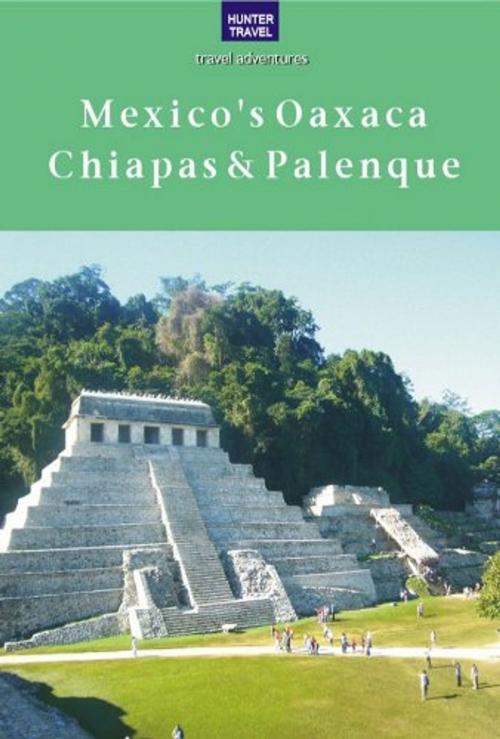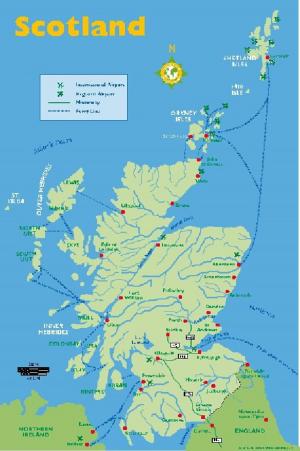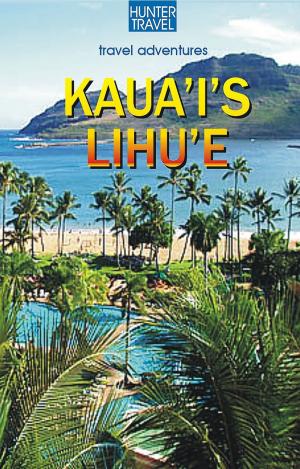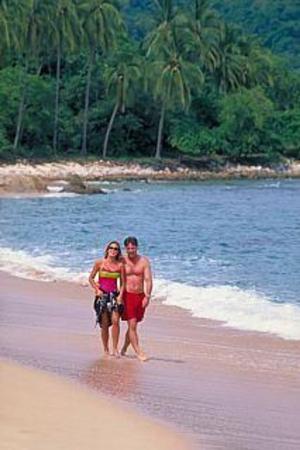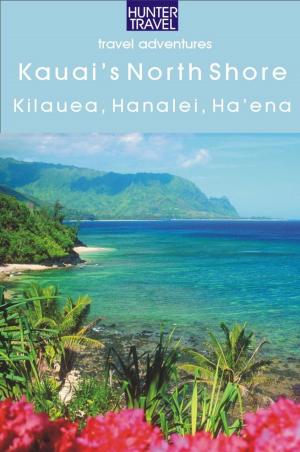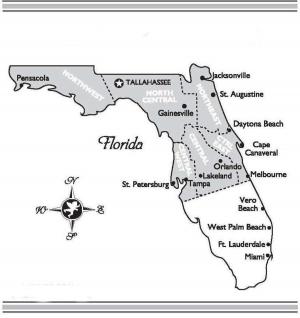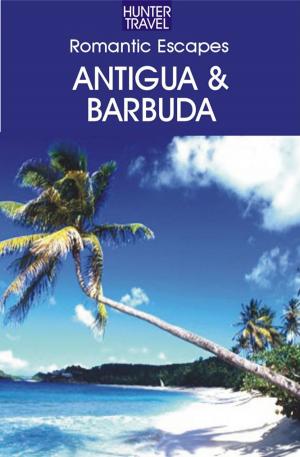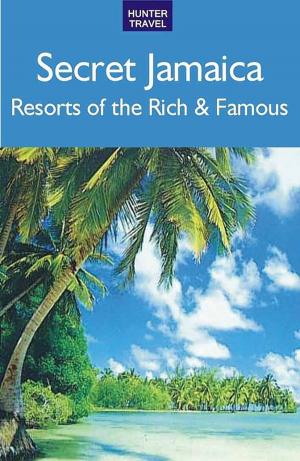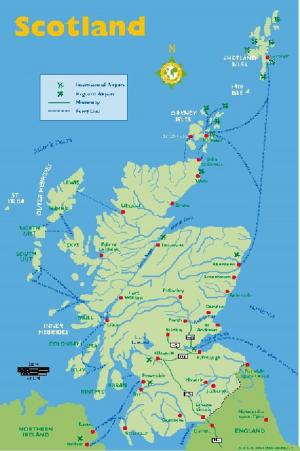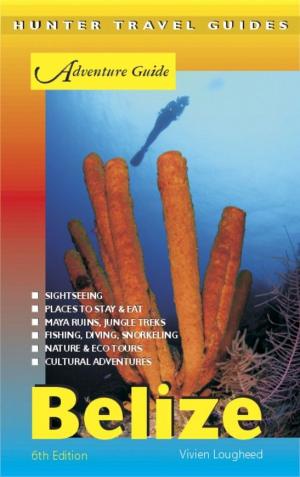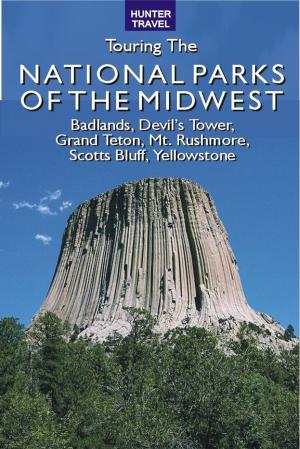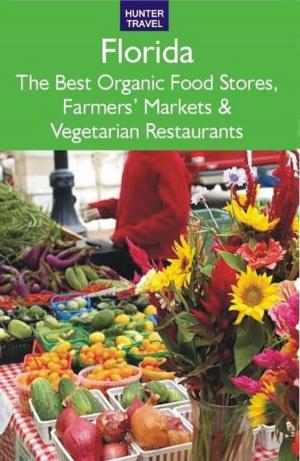| Author: | Joanie Sanchez | ISBN: | 9781556500756 |
| Publisher: | Hunter Publishing | Publication: | October 29, 2012 |
| Imprint: | Language: | English |
| Author: | Joanie Sanchez |
| ISBN: | 9781556500756 |
| Publisher: | Hunter Publishing |
| Publication: | October 29, 2012 |
| Imprint: | |
| Language: | English |
South of Veracruz looms the state of Oaxaca. Highway 17 from Veracruz pushes right into its northern half, unmindful of the mountains that rise up, the vegetation that looms closer and greener, or the wildlife that diversifies and multiplies, as the population thins out. Oaxaca's northern half is wild and remote - mountains and cloud forests, inhabited by only a few communities that dot the highways. As you head south, the land slowly becomes more populous approaching the Valles Centrales (Central Valley) and the beautiful city of Oaxaca itself; beyond that, you hit the Sierra Madre del Sur, and then the Pacific Ocean. Of its population, 30% (16 separate groups) are indigenous. The Mixtecs and Zapotecs make up the largest groups. Local handicrafts and festivals have made it a favorite of visitors seeking a unique cultural experience. Its cultural diversity is only outdone by its biodiversity - 50% of México's plant species, and 40% of its mammals call Oaxaca home. And then there is the beautiful colonial architecture of Oaxaca (the city) and the miles of coastline, including the lovely bays of Huatulco and Puerto Escondido. The Zapotecs ("people of the zapote tree" from the Náhuatl name Tzapotecatl) are an indigenous people of the Oaxaca Valley; today's descendants come from a civilization that developed and flourished from 300 BC to 950 AD. One of the culture's most famous achievements was Monte Albán - a hilltop capital and religious center built around the year 500 BC in the Oaxaca Valley. And then, across the border in the state of Chiapas, is one of the most spectacular attractions the ruins of Palenque. If the name doesn't already bring some kind of image to mind, let me set you up: mist-enshrouded mornings, lush-green Chiapan rain forest covering nearby hills, massive, magnificent, detailed, ancient ruins it's beautiful, impressive, inspiring and unforgettable. There's much more to see and do here as well. It's all detailed in this unique guide, along with the information about where to stay, where to eat, how to get around, what to see, and more.
South of Veracruz looms the state of Oaxaca. Highway 17 from Veracruz pushes right into its northern half, unmindful of the mountains that rise up, the vegetation that looms closer and greener, or the wildlife that diversifies and multiplies, as the population thins out. Oaxaca's northern half is wild and remote - mountains and cloud forests, inhabited by only a few communities that dot the highways. As you head south, the land slowly becomes more populous approaching the Valles Centrales (Central Valley) and the beautiful city of Oaxaca itself; beyond that, you hit the Sierra Madre del Sur, and then the Pacific Ocean. Of its population, 30% (16 separate groups) are indigenous. The Mixtecs and Zapotecs make up the largest groups. Local handicrafts and festivals have made it a favorite of visitors seeking a unique cultural experience. Its cultural diversity is only outdone by its biodiversity - 50% of México's plant species, and 40% of its mammals call Oaxaca home. And then there is the beautiful colonial architecture of Oaxaca (the city) and the miles of coastline, including the lovely bays of Huatulco and Puerto Escondido. The Zapotecs ("people of the zapote tree" from the Náhuatl name Tzapotecatl) are an indigenous people of the Oaxaca Valley; today's descendants come from a civilization that developed and flourished from 300 BC to 950 AD. One of the culture's most famous achievements was Monte Albán - a hilltop capital and religious center built around the year 500 BC in the Oaxaca Valley. And then, across the border in the state of Chiapas, is one of the most spectacular attractions the ruins of Palenque. If the name doesn't already bring some kind of image to mind, let me set you up: mist-enshrouded mornings, lush-green Chiapan rain forest covering nearby hills, massive, magnificent, detailed, ancient ruins it's beautiful, impressive, inspiring and unforgettable. There's much more to see and do here as well. It's all detailed in this unique guide, along with the information about where to stay, where to eat, how to get around, what to see, and more.
